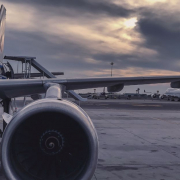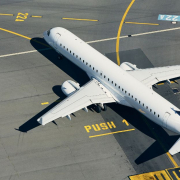First aid as accident under the Montreal Convention
In its ruling C-510/21 on 6 July 2023, the European Court of Justice (ECJ) decided that inadequate first aid on board an aircraft following an accident under the Montreal Convention must be regarded as forming part of that accident.
Facts of the case
The case, once again brought before the ECJ by an Austrian court (this time: the Austrian Supreme Court), involved Austrian Airlines.
On 18 December 2016, the claimant was travelling from Tel Aviv to Vienna on a flight operated by Austrian Airlines. During this flight, hot coffee was spilled on the claimant, resulting in injuries. Subsequently, first aid was administered to the claimant on board the aircraft.
In 2019, after the expiration of the time limit specified in Article 35 of the applicable Montreal Convention, the claimant filed a lawsuit against Austrian Airlines in Vienna. The claimant argued that the inadequate first aid should not be considered an accident under Article 17 of the Montreal Convention, and therefore, his claims for damages should be governed solely by Austrian national law. Consequently, the three-year time limit stipulated by Austrian national law would apply, and his claims would not be time-barred.
Questions raised by the Austrian Supreme Court
(1) Is first aid which is administered on board an aircraft following an accident within the meaning of Article 17(1) of the [Montreal Convention] and which leads to further bodily injury to the passenger which can be distinguished from the actual consequences of the accident to be regarded, together with the triggering event, as a single accident?
(2) If Question 1 is answered in the negative: Does Article 29 of [the Montreal Convention] preclude a claim for compensation for damage caused by the administration of first aid where that claim is brought within the limitation period under national law but outside the period for bringing actions which is laid down in Article 35 of [that] convention?
Legal outcome
The ECJ determined that it is not always possible to attribute damage to an isolated event when that damage is the result of a series of interdependent events. Therefore, when intrinsically linked events occur successively, they should be considered as constituting a single accident under the Montreal Convention.
Based on this interpretation, the ECJ concluded that inadequate first aid provided on board an aircraft following an accident under the Montreal Convention must be considered as part of that accident.
Due to this interpretation, it was not necessary for the ECJ to answer the second question. We are still awaiting a ruling in which the ECJ provides a clear opinion on the scope of the Montreal Convention´s exclusivity principle.
Don´t hesitate to contact our Aviation Team to learn more about passenger claims in Austria.


